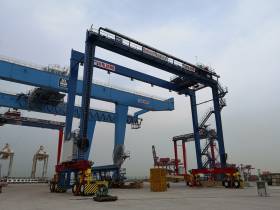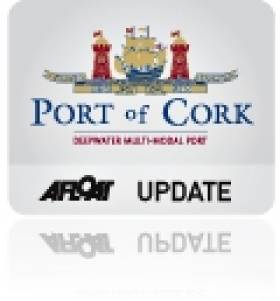Displaying items by tag: container terminal
Upgrade Investment of £40m for Belfast Harbour Container Terminal
In an announcement Belfast Harbour is to invest £40m to upgrade its container terminal, writes the News Letter.
Victoria Terminal 3 (VT3), where the upgrade will take place, connects Northern Ireland to global markets through European hub ports of Rotterdam and Antwerp.
Recently, Belfast Harbour launched its 2035 Strategic Outlook with plans to be the ‘Best Regional Port in the World’ and a ‘Smart Port’ by investing in new technology and enhancing capacity.
It is expected that this upgrade will improve productivity and help customers grow and target new trade opportunities.
More here from this story to take place at VT3.
Port of Cork to Submit New Container Terminal Plans
#PORT & SHIPPING NEWS - The Port of Cork is scaling down its plans for a new container terminal in Ringaskiddy, according to the Irish Examiner.
The new plan is "significantly scaled back" from the €220 million containter terminal proposal for Oysterbank, which was rejected at appeals stage two years ago.
Port officials hope to submit the new application under the Strategic Infrastructure Act, which means the decision will be made by An Bord Pleanála and not Cork County Council.
Officials are already in consultation with the planning board and interest groups around Cork Harbour to eliminate any issues before proceeding with the new scheme, which will be half the size of the previous plan and will involve less land reclamation.
Expected upgrades to the roads infrastructure in the area will also have an impact on the new proposals.
The €100 million plan would be constructed over four phases, to be fully operational by 2020.
The Irish Examiner has much more on the story HERE.






























































